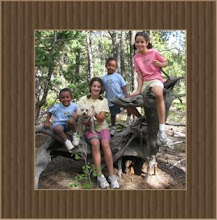
We have found many of the ideas in here very useful for all of our kids. I am going to give some personal advice on here. I do not usually do that, I tend to favor giving you tons of information and letting you decide what to do with it. However, with this one..... I think every adoptive family needs this book. I feel that if you have kids in your home you should read this book and implement it with the kids you have before you add new children to the home. Then it is all in place for your kids who are on their way to your family, and you are all practiced up and your kids now won't be asking you why you are doing it different with the new siblings. I do not think this is strictly a parenting technique for adopted kids but rather what all kids can benefit by. I love this book it is really great. It works for us and we have the diverse kids over here, ha, don't we all!
This book talks about the basic connection your child needs and why it is broken and how to fix it. It gives you ways to implement basic and really important things like: obey the first time, be respectful, no hurts, calm and gentle actions and voice, asking for what you need, etc.
Did you know that your child will mirror the type of attachment style you have? If you have a secure attachment style this will come easier for them, if you have an insecure attachment style then they too will exhibit this type of attachment. How do you know what your style is? Some self examination is in order to find out your attachment style. It is probable that in all your training you have actually had some sort of "ah-ha" moment regarding your own attachment style, grief process and well, all sorts of connections to your child hood events and why you do what you do now. If not, maybe it is time. Dr. Purvis encourages parents to seek out their own story and embrace it and grow from it. She said over and over if you as the parent have not done significant healing of your own you will not be able to lead your child to healing. Here at our house, we can attest to this as truth. Never fear, now is not too late. As you change and grow so will your child. Healing begets healing.
You can also access this information in video clips on Empowered To Connect.
You can buy the videos from TCU.
I strongly suggest that you make this the top priority in reading and implementing BEFORE you bring your child home. And, if you did not do it before, well get it now and start doing this. It is a wonderful tool.












































